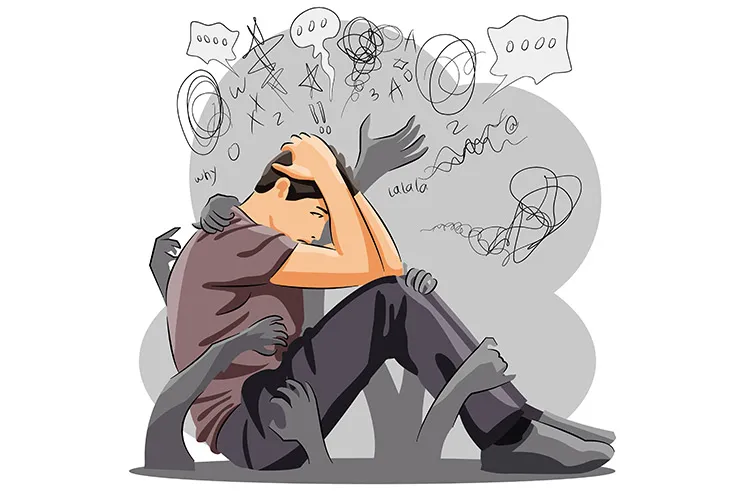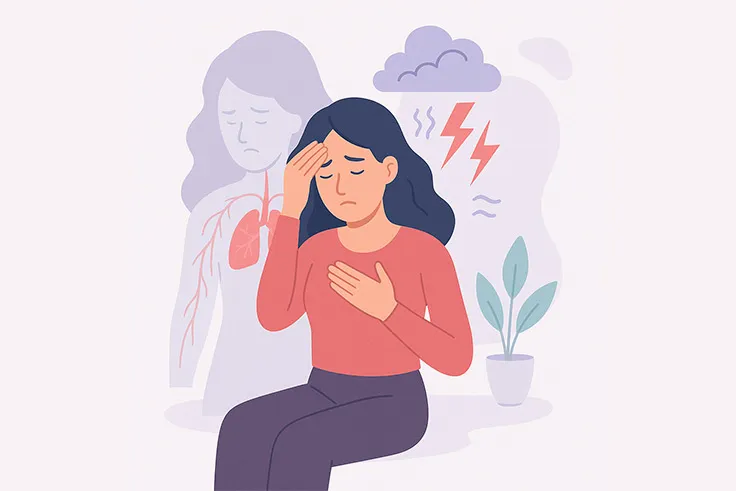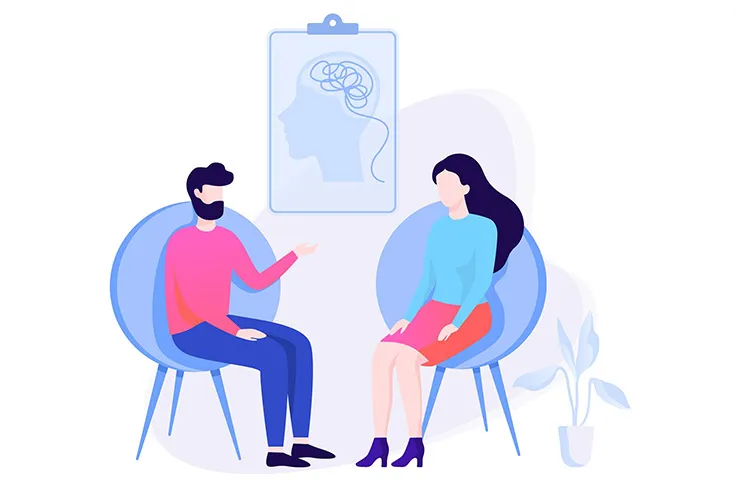
The Science of Depression: Understanding the Biological and Psychological Factors
Depression is a pervasive mental health condition that extends far beyond fleeting feelings of sadness. It’s a complex condition with deep roots in both our biology and psychology, affecting millions worldwide. By delving into the science behind depression, we can uncover how genetics, brain chemistry, and environmental influences interact to shape our mental health. This exploration not only sheds light on why depression occurs but also emphasizes the importance of a comprehensive approach to treatment. Understanding these factors is crucial for those struggling with depression and their loved ones, as it highlights the need for professional support and holistic care.
Biological Factors
Genetics
Genetics significantly influence the likelihood of experiencing depression. Research involving twins and families has demonstrated that individuals with a family history of depression are more prone to developing it themselves. Specific genes linked to mood regulation, stress response, and neurotransmitter function play a crucial role. For example, variations in the serotonin transporter gene can affect an individual’s vulnerability to depression.
Brain Chemistry
The brain’s chemistry is integral to regulating mood and emotions. Neurotransmitters, such as serotonin, dopamine, and norepinephrine, are chemicals that transmit signals between nerve cells. Imbalances in these neurotransmitters are often associated with depression. For instance, low levels of serotonin are linked to mood disorders, while dopamine imbalances can impact motivation and pleasure.
Hormonal Influences
Hormonal changes and imbalances can also contribute to depression. Conditions such as hypothyroidism, Cushing’s syndrome, and hormonal fluctuations during menopause or after childbirth can trigger depressive symptoms. The stress hormone cortisol is particularly significant; elevated cortisol levels over prolonged periods can lead to changes in the brain that predispose individuals to depression.
Psychological Factors
Cognitive Patterns
The way individuals think about themselves, their experiences, and the world around them can significantly impact their mental health. Negative cognitive patterns, such as rumination (repeatedly thinking about distressing situations) and cognitive distortions (irrational or exaggerated thoughts), are common in those with depression. Cognitive-behavioral therapy (CBT) is an effective treatment that helps individuals identify and change these negative thought patterns.
Emotional Regulation
Difficulty regulating emotions is a hallmark of depression. Individuals with depression often experience intense and prolonged negative emotions, such as sadness, hopelessness, and irritability. Learning healthy emotional regulation strategies, such as mindfulness and emotional awareness, can help manage these feelings and reduce the impact of depression on daily life.
Emotional Regulation Techniques for Managing Depression
While understanding the biological underpinnings of depression is essential, practical emotional regulation techniques can offer immediate relief and long-term benefits for those struggling with depressive symptoms. Here are some effective strategies:
Mindfulness Meditation
Mindfulness meditation involves focusing on the present moment without judgment. This practice can help individuals become more aware of their thoughts and feelings, reducing the tendency to ruminate on negative experiences. Regular mindfulness practice has been shown to decrease symptoms of depression by promoting a sense of calm and acceptance.
Deep Breathing Exercises
Deep breathing exercises can help calm the nervous system, reducing feelings of anxiety and stress. Techniques such as diaphragmatic breathing, where one inhales deeply through the nose and exhales slowly through the mouth, can lower cortisol levels and promote relaxation.
Journaling
Expressive writing through journaling allows individuals to process their emotions and thoughts. By writing about their experiences and feelings, individuals can gain insight into their cognitive patterns and identify areas where they can implement positive changes. Journaling can serve as a therapeutic outlet, helping to clarify and release pent-up emotions.
Physical Activity
Engaging in regular physical activity is a powerful tool for managing depression. Exercise releases endorphins, which are natural mood lifters. Activities such as walking, running, yoga, or dancing can help improve mood, increase energy levels, and reduce symptoms of depression.
Cognitive Restructuring
Cognitive restructuring is a core component of CBT, where individuals learn to identify and challenge negative thought patterns. By reframing these thoughts into more balanced and realistic ones, individuals can reduce feelings of hopelessness and improve their overall outlook.
The Interplay of Biological and Psychological Factors
Depression is rarely caused by a single factor. Instead, it results from the complex interplay of biological, psychological, and environmental influences. For instance, an individual with a genetic predisposition to depression may not develop the condition unless they experience significant life stressors or have difficulty regulating their emotions. Similarly, someone with no family history of depression might develop the condition due to chronic stress and negative cognitive patterns.
Seeking Professional Support
Understanding the multifaceted nature of depression highlights the importance of professional support in managing this condition. Therapies such as CBT can help address negative thought patterns and improve emotional regulation. Additionally, lifestyle changes, such as regular exercise, a healthy diet, and stress management techniques, can support overall mental health.
Depression is a complex condition with roots in both biological and psychological factors. By understanding the science behind depression and implementing practical emotional regulation techniques, individuals can take proactive steps towards managing their symptoms. If you or someone you know is struggling with depression, seeking professional help is a crucial step towards recovery. At Incontact Counselling, our team of experienced professionals is here to support you on your journey to better mental and physical health. Reach out to us today to start your path to healing.
- https://www.apa.org/topics/depression
- https://www.health.harvard.edu/staying-healthy/understanding-the-stress-response
- https://www.mayoclinic.org/diseases-conditions/depression/symptoms-causes/syc-20356007
- https://psychiatryonline.org/doi/10.1176/appi.neuropsych.15030053
- https://www.ncbi.nlm.nih.gov/pmc/articles/PMC3718650/
- https://www.ncbi.nlm.nih.gov/pmc/articles/PMC6065213/
- https://med.stanford.edu/depressiongenetics/mddandgenes
Submit a Comment
Your email address will not be published. Required fields are marked *
Related reading
What Not to Expect from Therapy: Dispelling Common Misconceptions
24 April, 2025
You finally booked your first therapy session, nerves and hope swirling inside you. Maybe you’ve heard that therapy can work wonders – and it can. In f...
It’s Not Just in Your Head: How Trauma Affects Your Body and How You Can Heal
23 April, 2025
Have you ever noticed aches, fatigue, or tension in your body after a stressful or traumatic experience? If so, you’re not alone. When we think of trauma...
How to Prepare for Your First Therapy Session: A Beginner’s Guide
5 March, 2025
Choosing to begin therapy is a courageous and empowering decision. It signifies your willingness to invest in your mental and emotional well being, it’s ...





